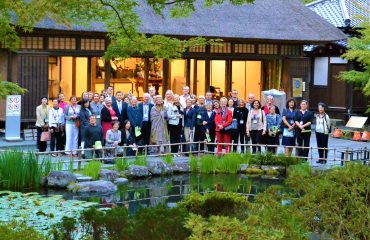Men, Women, And Aging. Where Did I Leave My Keys?
“He’s making me nuts” Julia runs her hands through her short gray hair. “He follows me around the house like one of those terrible little dogs. I can’t get anything done! Was he always this dense? It seems like I have to explain everything 40 times”.
Julia is a longtime patient of mine, in for an annual checkup. Her physical health is terrific, but as I’m hearing, her mental health is something else entirely. The source of the strain: her recently retired husband. “Thirty years, two kids – we spent so much time talking about how great it would be for him to be out of the rat race, but I’m spending our retirement doing everything I can not to kill him!”
Unfortunately, Julia is hardly alone. Many people and their spouses find the golden years of their retirements a surprisingly bitter pill to swallow, and I can’t count the number of stunned patients I’ve seen, struggling to figure out why they are not happy now that they’ve gotten this long-awaited treat. Once again, I suspect that the answer lies in the significant differences between men and women – and in this case, in how they age.
As I explained to Julia, while men and women both get older and experience physical, mental, and sexual changes as a result, the process manifests itself differently – and with different timing – in both sexes. Ultimately, we become more like each other than we may have been at any other time in our lives since childhood but getting there can be rocky. The differences between us can cause a great deal of conflict – just as life is supposed to be getting much easier.
The Aging Brain
We’re living longer than we ever have before; in fact, our life spans have doubled in the past 100 years. Retirement used to signal the end of a productive life; now it’s quite literally a “third act”, filled with travel, the satisfaction of long-postponed creative impulses, new loves, and second (or third) careers. This third act will be enjoyed by record numbers. By 2050, 1/5 of the American population will be 65 or older.
With so many more happy, healthy, active older people, our conception of aging is evolving as well. The AARP was recently up in arms about an ad for a cell phone that would make it easier for the elderly to get in touch with their “doctors and grandchildren”. I teased one of my older patients about it when I saw her answering her email in my waiting room; she smiled up at me, thumbs still flying over a slender platinum handheld, and hummed, “Times, they are a-changing.”
Aging seems to be a double-edged sword. On the one hand, I don’t agonize over every reversal or disappointment the way I did when I was 20; they don’t seem to have the same intensity they used to. A missed telephone call from the man of the hour doesn’t precipitate a crisis, and if my son forgets he agreed to have dinner with me, I shrug it off, happy to see that his life is full and busy too. Things don’t seem to be as catastrophically important as they once did, either. I find I lend my daughter my favorite clothes and jewelry without even a twinge of anxiety, and a worn spot on a wonderful oriental carpet merely reminds me of how many times I have happily walked through my beloved apartment.
But that’s not all that’s changed. I have to pay attention where I put my house keys away, so I won’t spend 15 minutes looking for them the next morning. I now have to remind myself to focus on what I’m doing, so I don’t get hopelessly distracted by one of the other thousand things that I’m processing simultaneously. It’s harder for me to learn a new song at my piano, and I absolutely cannot remember the name of a novel I loved 10 years ago.
My male friends have different complaints and celebrations, but certain things are the same. Our more fixed abilities, like our vocabulary, deteriorate less than more sophisticated processes like our ability to show good judgment or the capacity to pay attention to what we’re doing. As we’ll see (and you will eventually!), the memories of both sexes are particularly susceptible to the ravages of time.
Specialist in internal medicine and primary care.




